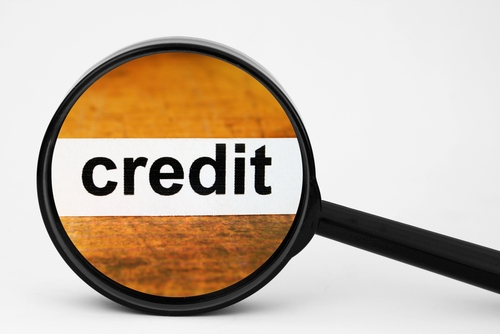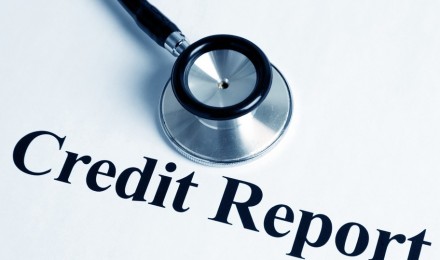Consumer debt in the United States is exploding. People hold more debt today than ever before. With so many people holding so much debt, smart consumers are familiar with the tools used by lenders and issuers of credit to evaluate their credit worthiness.
Often, people confuse two tools that lenders use in determining credit worthiness of a borrower. The first tool is your credit report; the second is your credit score. Your credit score is calculated by the items contained in your credit report. Three companies in the United States maintain these reports or credit records:
Credit Reports
Your credit report is a file that records how you used credit in the past. It has many details collected from participating creditors. However, not all creditors report to all three agencies, accordingly, each credit bureau report is different. Lenders look at credit reports to help them decide if they want to risk extending credit to you.
Each credit bureau file contains the following kinds of information:
- Identifying information: Your name, address and social security are included in this information.
- Types of credit you have taken: This includes information on car loans, mortgages, and credit cards including store credit cards.
- How long your credit lines have been open, how much available credit is used and how much is outstanding.
- Credit inquiries from others who issue credit
- Bank information
- Information from public records: Includes judgments and bankruptcies.
Credit Score
Your credit score calculation uses the information that is contained in your credit bureau report. Since each report is different due to participating creditors (those who report to a specific credit bureau) so is each credit score for each of the three credit report agencies.
In other words, your credit score is a single number that summarizes the information from the credit bureau. Your credit score number also is known as your FICO number. This abbreviation stands for Fair Isaac Company, the company that developed the method for calculating your score. While the basics are known as to how your FICO is calculated, each credit reporting agency does calculate your FICO score with them differently than the other companies. Even two companies with the exact same information, calculate your credit score differently, so there can be a difference in your credit score.
The FICO scores have a range of 300 to 850. The closer you are to 300 the more difficult it is to get credit, if you do get credit, your interest rate will be high. The nearer your score is to 850, the easier it is to obtain credit and the lower your credit cost (interest rate).
While both your credit report and your credit score go to potential lenders, they rely heavily on credit scores in determining if you are credit worthy. For this reason, it is imperative that you check your credit report for accuracy. Simply click on the link to the three credit bureaus (above) and follow their instructions for obtaining your credit report.
By Federal law, you are entitled to a free copy of each of the credit bureau reports once each year.
If your credit report has any inaccuracies, it is important that you correct them. To do this, send in writing to the credit bureau(s), the mistake(s) you are contesting and copies of any proof you have of their error.
Keeping your credit report error free helps you to maintain the good credit you deserve. Credit bureaus deal with so much data each day that mistakes while vexing, happen more often than you suspect.
Consumer debt in the United States is exploding. People hold more debt today than ever before. With so many people holding so much debt, smart consumers are familiar with the tools used by lenders and issuers of credit to evaluate their credit worthiness.
Often, people confuse two tools that lenders use in determining credit worthiness of a borrower. The first tool is your credit report; the second is your credit score. Your credit score is calculated by the items contained in your credit report. Three companies in the United States maintain these reports or credit records:
Credit Reports
Your credit report is a file that records how you used credit in the past. It has many details collected from participating creditors. However, not all creditors report to all three agencies, accordingly, each credit bureau report is different. Lenders look at credit reports to help them decide if they want to risk extending credit to you.
Each credit bureau file contains the following kinds of information:
- Identifying information: Your name, address and social security are included in this information.
- Types of credit you have taken: This includes information on car loans, mortgages, and credit cards including store credit cards.
- How long your credit lines have been open, how much available credit is used and how much is outstanding.
- Credit inquiries from others who issue credit
- Bank information
- Information from public records: Includes judgments and bankruptcies.
Credit Score
Your credit score calculation uses the information that is contained in your credit bureau report. Since each report is different due to participating creditors (those who report to a specific credit bureau) so is each credit score for each of the three credit report agencies.
In other words, your credit score is a single number that summarizes the information from the credit bureau. Your credit score number also is known as your FICO number. This abbreviation stands for Fair Isaac Company, the company that developed the method for calculating your score. While the basics are known as to how your FICO is calculated, each credit reporting agency does calculate your FICO score with them differently than the other companies. Even two companies with the exact same information, calculate your credit score differently, so there can be a difference in your credit score.
The FICO scores have a range of 300 to 850. The closer you are to 300 the more difficult it is to get credit, if you do get credit, your interest rate will be high. The nearer your score is to 850, the easier it is to obtain credit and the lower your credit cost (interest rate).
While both your credit report and your credit score go to potential lenders, they rely heavily on credit scores in determining if you are credit worthy. For this reason, it is imperative that you check your credit report for accuracy. Simply click on the link to the three credit bureaus (above) and follow their instructions for obtaining your credit report.
By Federal law, you are entitled to a free copy of each of the credit bureau reports once each year.
If your credit report has any inaccuracies, it is important that you correct them. To do this, send in writing to the credit bureau(s), the mistake(s) you are contesting and copies of any proof you have of their error.
Keeping your credit report error free helps you to maintain the good credit you deserve. Credit bureaus deal with so much data each day that mistakes while vexing, happen more often than you suspect.







